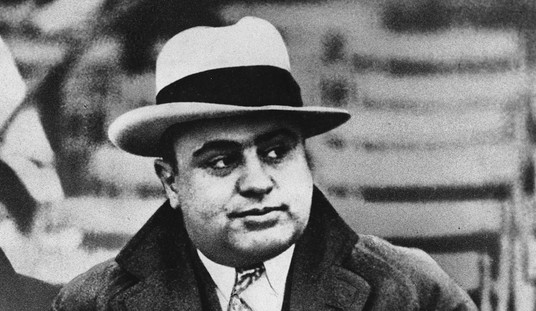If Barack Obama hoped to pivot to the economy by stirring up populist anger against the very banks he and Democrats in Congress helped bail out over the last two years, he found controversy and a shot across his bow instead. Mayor Mike Bloomberg lashed out at Obama’s reform proposals, calling them economic doom for his city and an end to the US as the center of Western finance. Expect layoffs by the boatload if this passes, an angry Bloomberg told reporters yesterday:
President Barack Obama’s demand Thursday that Congress clamp down on the size of banks and their investments got major blowback from New York City Mayor Michael Bloomberg, who said it could cause layoffs and hurt the city.
It’s a clash between the president and the mayor. President Obama wants to whittle away at the size of the financial services industry. …
The mayor was so upset about the move — and a suggestion that Wall Street bonuses be put in escrow, which means the money wouldn’t be spent here, wouldn’t help the city economy — he responded with a proposal of his own for members of Congress.
“Maybe we should hold back their salaries for a decade or so and see whether the laws they pass work out,” Bloomberg said.
The mayor also demanded that the members of our congressional delegation go to the mat to protect the financial services industry, much like senators from Texas protect the oil industry.
Obama got some pushback from his own team as well. Treasury Secretary Tim Geithner, already one of the most unpopular officials in Obama’s Cabinet, let his reservations about Obama’s plan go public at the same time:
President Barack Obama’s newest Wall Street crackdown was met with hesitation from Treasury Secretary Timothy Geithner, who voiced concern that politics could sacrifice good economic policy, according to financial industry sources.
Geithner is concerned that the proposed limits on big banks’ trading and size could impact U.S. firms’ global competitiveness, the sources said, speaking anonymously because Geithner has not spoken publicly about his reservations.
He also has concerns that the limits do not necessarily get at the root of the problems and excesses that fueled the recent financial meltdown, the sources said.
The Corner has an enlightening running debate at their site today on how exactly these reforms would have stopped the 2008 financial collapse. The consensus among supporters and dissenters is that they wouldn’t have even applied to that crisis, a conclusion that the White House essentially corroborated with its response to Reuters:
The White House official said Obama’s economic team considered the concern that proprietary trading was not at the heart of the problems that fueled the financial crisis. But it concluded that reform needed to be about more than just fighting the last war, it needed to address sources of future risk as well, the official said.
That certainly leaves the impression that the White House plan has a lot more to do with long-term ideological goals than in fixing what actually went wrong.
Read through the entire debate, because both sides make good points. To the extent that we allowed financial institutions to reach the point where one or two failures could crash the whole system, some reform may be in order. But we should be focusing on fixing what was broken, not on a wish list of government interventions left over from the early 1980s, either. We can start by removing the moral hazard that the bailouts created, ie, make it clear that we aren’t bailing out banks or corporations in the future and ending the TARP programs immediately.
But if we really want to keep the financial sector healthy, Congress has to quit conducting social engineering by warping the market with artificial incentives, especially in lending and securities. None of this would have happened had Fannie Mae and Freddie Mac not started a housing bubble by buying and then securitizing trillions in bad debt, pushed by Congress to entice lenders to make risky loans, and then not paying attention to the secondary derivative markets that created. Legislation that bars the government from the lending markets in any other role than normal regulation would go a long way towards building investor confidence and economic strength.








Join the conversation as a VIP Member